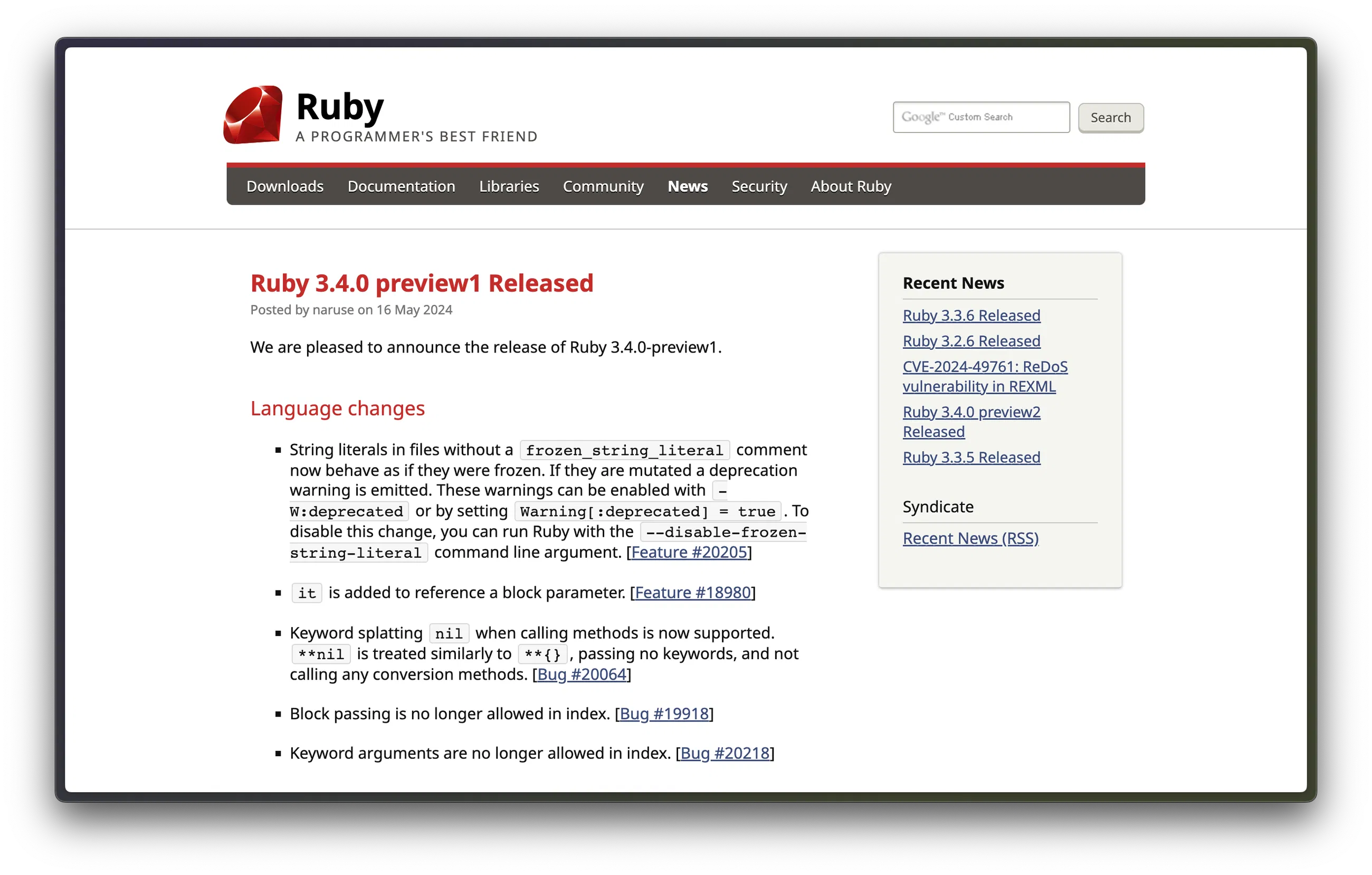Introduction The eagerly awaited Ruby 3.4 is set to release on December 25, but the preview has been available since May! While this version doesn't introduce major changes, there are several enhancements that Ruby developers will find beneficial.
Language Changes
Frozen String Literals
Historically, Ruby files could use the magic comment frozen_string_literal: true to treat all string literals as frozen. In Ruby 3.4, strings will be frozen by default, issuing a deprecation warning if modified, gearing up for a future version where mutating strings will raise an exception. This change aids developers in migrating their applications smoothly.
Default Block Parameter
To simplify code blocks, Ruby 3.4 introduces a default block parameter, enhancing readability and reducing boilerplate code. Pre-3.4, iterating over an array with each method required explicitly naming parameters or using numbered parameters introduced in Ruby 2.7. The new update allows for a more intuitive syntax: "one, two, three each prints it" This feature streamlines common patterns and improves code clarity.
Keyword Splatting nil
Previously, using the double splat operator with nil raised a TypeError. Ruby 3.4 now treats nil as an empty hash when splatted, thus preventing errors and streamlining function calls that accept hash arguments.
Core Class Updates
Exception#set_backtrace
Ruby 3.4 allows setting the backtrace of an exception with an array of Thread Backtrace Location objects, enabling developers to reconstruct backtrace instances accurately and handle exceptions more effectively.
Range#size
The size method behavior on non-iterable ranges has been updated to throw a TypeError, tightening the language's type system and reducing ambiguous behaviors.
Other Enhancements
Method Blocks
Ruby now warns developers when a block is passed to a method that doesn't utilize it, especially in verbose mode, helping clean up unused code blocks.
Performance Improvements
The performance of Array.each has been enhanced due to an implementation rewrite, promising faster array operations.
Error Handling
Error messages and backtraces have been refined to use single quotes instead of backticks and now display the class name before a method name, improving readability and debuggability.
Upgrading to Ruby 3.4 Upgrading to Ruby 3.4 should be straightforward for most developers. The most time-consuming task may involve removing obsolete frozen string literals comments. Developers are encouraged to upgrade and take advantage of these new features to optimize their Ruby applications.
Conclusion Ruby 3.4, while not revolutionary, brings several thoughtful updates that refine the developer experience and enhance language efficiency. These improvements underscore Ruby's commitment to developer productivity and software quality.
Newsletter Sign-Up
Stay updated with the latest Ruby news and tutorials by signing up for the Honeybadger newsletter!
This version of the post integrates code examples as plain text to maintain the flow and readability of the article, adhering to your formatting preferences.










Comments (0)